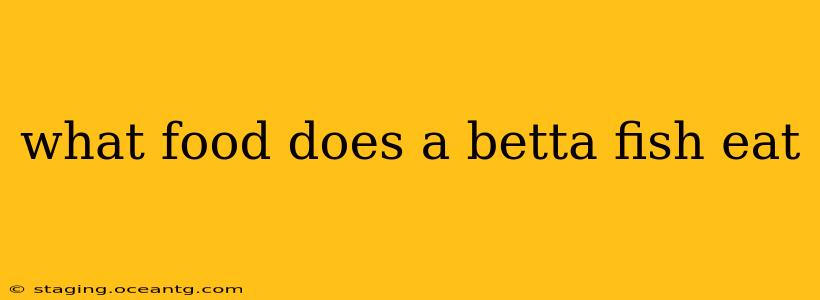Betta fish, also known as Siamese fighting fish, are captivating creatures with vibrant colors and flowing fins. Providing them with a proper diet is crucial for their health, longevity, and vibrant appearance. This comprehensive guide will delve into the best foods for your betta, addressing common questions and misconceptions.
What is the Best Food for Betta Fish?
The ideal betta fish diet consists of a varied selection of high-quality foods. Avoid solely relying on one type of food, as a balanced diet is essential for their well-being. Here’s a breakdown of suitable options:
-
High-Quality Betta Pellets: These are a staple in a betta's diet. Look for pellets specifically formulated for bettas, as they contain the necessary nutrients. Avoid generic fish food pellets as they may lack essential vitamins and minerals. Choose a sinking pellet to prevent surface-feeding only and encourage proper digestion.
-
Freeze-Dried Bloodworms: These are a popular treat, providing a good source of protein. However, they should be given sparingly, as they are high in fat and should not constitute the majority of their diet. Soak them in water before feeding to rehydrate them.
-
Live or Frozen Bloodworms: These offer a more nutritious option than freeze-dried bloodworms. Always quarantine live food before introducing it to your betta's tank to avoid introducing parasites or diseases.
-
Daphnia and Brine Shrimp: These small crustaceans provide additional protein and are a good source of variety in their diet. Like bloodworms, they should be given in moderation.
-
Micro-Worms: Tiny and nutritious, these are great for smaller bettas or as supplemental feeding.
What Should I Avoid Feeding My Betta Fish?
While there are many suitable options, some foods are harmful to bettas and should be avoided completely:
-
Bread, Rice, or Other Human Foods: These lack the necessary nutrients and can cause digestive problems.
-
Flake Food Designed for Other Fish: These are often too large for bettas to properly consume and may lack the specific nutrients they need.
-
Overfeeding: This is a common mistake that can lead to obesity, digestive issues, and water quality problems. Stick to the recommended feeding amounts.
How Often Should I Feed My Betta Fish?
The general rule is to feed your betta small amounts twice a day. A good guideline is to feed them only what they can consume within 2-3 minutes. Adjust the amount depending on your betta’s size and activity level. Overfeeding can significantly impact their health, so observation is key.
How Much Should I Feed My Betta Fish?
The amount you feed your betta depends on its size and age. A small betta may only need 2-3 pellets twice a day, whereas a larger adult betta may need a slightly larger amount. Always err on the side of caution and underfeed rather than overfeed. Observe your betta after feeding. If food remains uneaten after a few minutes, you are likely overfeeding.
Can Betta Fish Eat Vegetables?
While not essential, occasional small pieces of blanched vegetables like spinach or zucchini can provide added fiber. However, these should only be offered as a very occasional treat and not as a staple part of their diet. Ensure any vegetable is thoroughly cleaned and blanched before offering it to your fish.
What are the Signs of a Betta Fish with Nutritional Deficiencies?
Signs of nutritional deficiencies in betta fish can include lethargy, loss of appetite, dull coloration, fin rot, and susceptibility to disease. If you notice any of these symptoms, review your feeding regime and consider consulting a veterinarian specializing in aquatic animals.
By following these guidelines, you can ensure your betta fish thrives with a balanced and nutritious diet, enjoying a long and healthy life filled with vibrant colors and energetic activity. Remember to always observe your fish and adjust your feeding schedule as needed.
